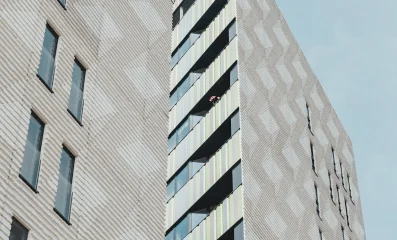Introduction
One of the biggest challenges property management companies face is the lack of a single, centralized solution that will cover all (or even most) of their business needs. In fact, a recent survey from NewVantage Partners reported that less than 40 percent of property management firms have been successful at integrating their disparate data into a single platform.
When property management companies don't have access to a single, holistic custom software development solution, they resort to piecemealing a system together out of multiple platforms. Unfortunately, this approach comes with several material disadvantages to both the property management companies and their residents.
Disadvantages of trying to blend multiple platforms
Integration risks
Rarely do all of the software systems a company uses ‘play well together’. This means integration requires significant manual data entry, file transfers, etc., increasing the risks of errors, data inconsistencies, and duplications.
Lack of data synchronization
Without cohesive integration, the disparate parts of the company operate in silos, and the lack of transparency creates a data management nightmare.
Property managers run the risk of duplicating data, working with outdated or inconsistent data, and letting important items slip through the cracks because an update to one platform did not transfer across all platforms due to a lack of legacy software modernization.
Increased training and support needs
When you're working with different platforms, each with different user interfaces and rules, training is required on each platform. This is time-consuming, expensive, and frustrating for employees. It also often means relying more on vendor support (and putting up with the costs and delays associated with that) to troubleshoot even the simplest issues.
Higher costs
Every software platform a company adopts comes with its own licensing or subscription fees and maintenance fees. The sheer costs add up quickly, not to mention the employee time required to manage every individual contract.
Fragmented user experience
The disadvantages of disparate systems weigh on users too, as they're required to learn one system for maintenance requests, for example, and another for billing. This tends to be frustrating and confusing for tenants, who blame the bad experience on the property management company and not on the disparate systems.
Reporting and analytics challenges
Consolidating and normalizing data to generate comprehensive reports across multiple software systems can be challenging, to say the least.
It's difficult to get holistic, up-to-date views on company initiatives and progress this way, which often means making business decisions based on incomplete or out-of-date information.

The solution: one system for all your needs
There are some short-term workarounds property management companies can use to limp along with patchwork software systems: you can prioritize extensibility when choosing your apps, you can implement robust data validation protocols, and/or you can conduct regular audits and reviews to identify wrinkles in your data.
All of these require significant time and resources, and they don't do much to alleviate the added costs or frustrations (for employees and residents alike) of disparate systems.
Our recommendation for a long-term solution is to commission custom software specifically tailored to your company's every business need. Imagine a single platform that integrates all your key functionalities: tenant management, lease administration, accounting, project management, investor communications, maintenance, and reporting. And all of these are tailored to your ideal workflow processes rather than requiring you to adjust your company processes to fit the software.
There's just one user interface, one platform to train employees on, and no recurring subscription or licensing costs. You have full control over the software, including maintenance and any changes or expansions you want to make as your company grows.
Finally, your residents will get the benefits of efficiency and accuracy from their property management company, as well as the ease of having just one hub for anything they need to keep their homes running smoothly.
If you're looking for a trusted partner to drive your next custom software development project forward, contact Syberry and tell us about your business goals.



